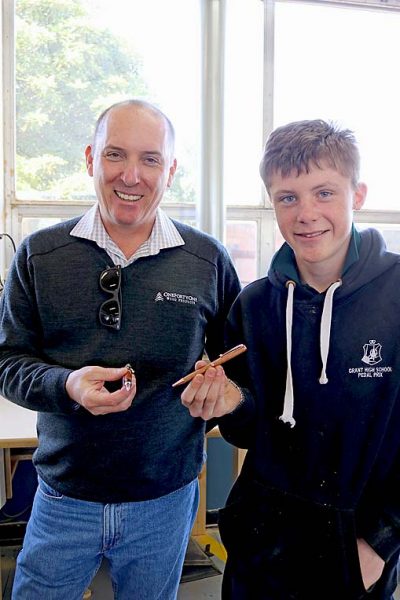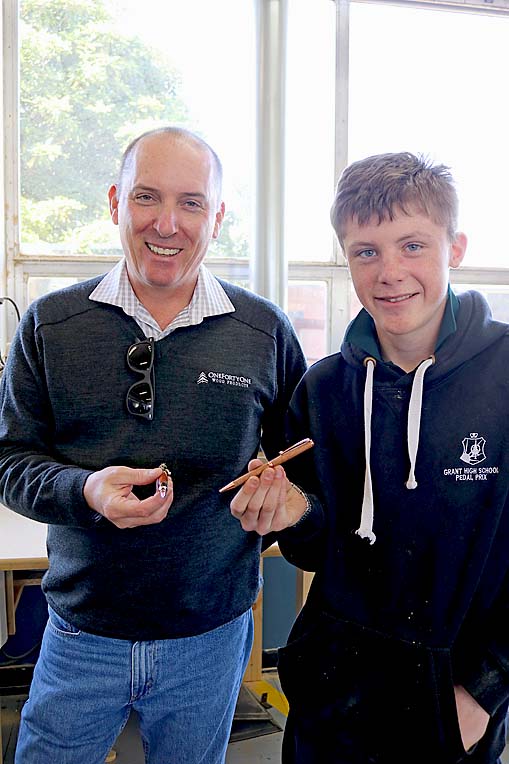
GRANT High School woodwork students have been using old skills to craft creations for use in today’s generation.
The school’s woodworking class is fast becoming popular thanks to help from OneFortyOne Plantation’s Jubilee Highway Sawmill.
Before 2017, the woodworking program was in decline with few students enrolled.
The school was struggling to find a supply of timber and parents were having to pay extra fees for their children to learn the traditional art of wood working.
When sawmill general manager Paul Hartung heard about the plight of the class, he was more than happy to become involved and supply the entire school’s woodworking timber needs for the year, free of charge.
“It was our pleasure to get involved with the school,” Mr Hartung said.
“Mount Gambier is a timber town and we should be doing everything we can to help our children learn how to make things from wood.
“It is the ultimate renewable and our region grows some of the best in the world.”
Grant High School teacher Scott McCulloch believes traditional classes are important for students’ overall wellbeing.
“Not every student finds school easy,” Mr McCulloch said.
“Woodwork gives students another experience and opportunity to do well in school.
“Once a child feels skilled in one area, confidence will carry over to other parts of their lives.”
Over two years, a significant number of students are picking up the subject, especially in Year 11 and 12.
“Woodworking class asks students to imagine a project and develop a plan to make it happen,” Mr McCulloch added.
“There is no better way to inspire creativity and problem solving than giving a student free reign in a room full of power tools.
“They can make something practical and beautiful from wood.”
Mr Hartung believes the benefits of supporting the class are more than just helping students learn practical manual tasks.
“It is a way to ensure local students see a bright future in the timber industry,” he said.
“Our local timber industry is thriving and we need young talented people to join it once they have finished school.
“It would be great to think that one of the local students enjoying a woodworking class could one day become the sawmill’s general manager.”
The mill offers a range of career options, including finance, engineering, environmental science, information technology, mechanical, electrical, saw doctoring and also trade apprenticeships.








